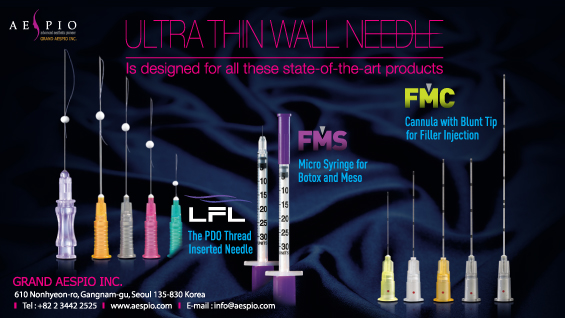We have met with dermatologists and plastic surgeons who are renowned speakers of their respective field. They shared with us the nervous experience of giving the very first talk, and what makes a great lecture. We also discussed special knowhow of giving talks in the international stage. These tips will help Korean doctors communicate their excellent medical aesthetic skills to the world.
“Honesty is a key ingredient of a good lecture.”

To describe what makes a good lecture, Dr. Koh said, “You have to continue providing new materials to be acknowledged as a good lecturer. It is also important to disclose all your knowhow with honesty and sincerity.”
Dr. Koh says he accepts or declines a talk request based on whether the occasion allows him to follow these principles. He prefers a lecture where he can discuss the topic openly with other speakers to a more rigid, commercial venue. He finds discussions with other speakers a good opportunity to learn.
“A good speaker understands his responsibility to maintain the audience’s attention to the end of his talk. Droning on about dry subjects will put the listeners to sleep. I try to emphasize certain points and mix in jokes to keep them interested. I do not follow a set protocol for my talks. Each talk is different even if they are given on the same topic. I have a large picture of how the talk should go but focus on details the audience is interested in at that particular talk.”

For visual materials, he tries not to include data easily found in books. His lecture slides include photographs he has taken himself in his clinical experience with real patients. His primary concern is to share all his skills and experiences with the audience.
“When all my secrets have been shared, I move on to find new areas to specialize in. Therefore, I think it is ultimately beneficial to the speaker himself to share all his knowhow with complete honesty. If you try to make things up or fail to provide new materials in any of your talks, the audience will not seek you out in couple of years. Honesty is the best policy. It is a true win-win strategy for you and the audience.”
Dr. Koh avoids monotonous or flamboyant styles of lecture.
“Disorganized, timid or excessively confident talks hardly win the audience over. As you are setting out to give talks, you will discover that certain tricks work and over time you get set in your ways. To avoid this, you can welcome constructive feedback and try to improve your next presentation.”
Dr. Koh emphasized that the audience’s attitude also contributes to the quality of the talk as much as the speaker’s.
“For example, when a member of the audience asks after my talk, ‘Why should we use your method when we are getting good outcome with a different method?’, it does not contribute to the discussion and only serves to belittle the speaker. The audience should accept the talk regardless of the speaker’s presentation skills, and only ask questions on the points they need clarification. I always welcome lecture opportunities where the audience are receptive and appreciative of a speaker who wholeheartedly shares his precious knowhow.”
Dr. Koh has divided APAS (Association of Petit Aesthetic Surgery) into symposium and intensive courses. APAS opens the podium to all speakers.
“These days, I am particularly interested in the new blood in the field of dermatology and plastic surgery. My wish is to have a long, heated discussion on new issues with the next generation of doctors.”
by Dr. Koh Iksoo, Petit Noble Aesthetic Center
[Advertisement] ULTRA THIN WALL NEEDLE – Manufacturer: AESPIO(www.aespio.com)
-To be continued-




















